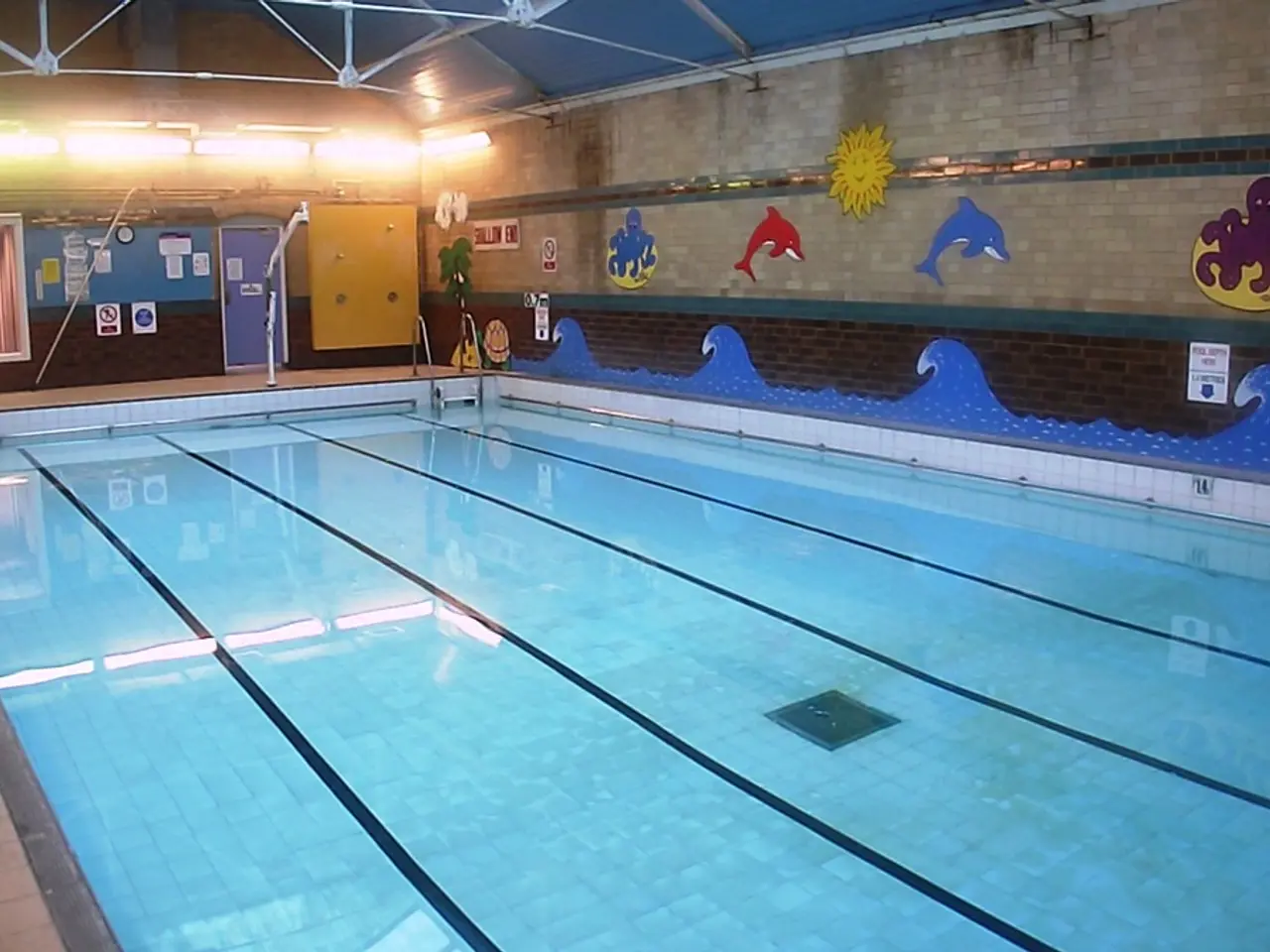Winter Preparation for Above-Ground Pools: Timing and Steps for Proper Maintenance
Preparing your swimming pool for winter is essential to ensure it remains in good condition and ready for use come spring. Here's a step-by-step guide to help you through the process.
Firstly, it's important to monitor the pool water temperature. Begin winterizing when the temperature drops below 65°F and stays there consistently, typically around mid-October in most regions. However, the exact timing depends on your local weather, so keep an eye on weather forecasts and plan to complete winterization before the first hard freeze in your area.
Once you've determined it's time to winterize, start by running a backwash cycle until the water runs clear. After that, switch to rinse for 30 seconds before moving the valve to the winterize position.
Next, remove all drain plugs from the pump, filter, chlorinator, and hoses. Store them together in the pump basket. For sand filters, set the multiport valve to winterize and remove the bottom drain plug. Cartridge filters need to be removed, rinsed, and stored indoors with valves left open.
Take out ladders, diving boards, and any other equipment that could be damaged by winter weather or contaminate the pool water if they corrode. Clean all accessories with a pool surface cleaner before storing them indoors in a dry location. If you live in an area with harsh freezing conditions, place a pool pillow under the winter cover to prevent damage.
Once all the preparations are made, install your winter cover and secure it with the cable and winch system. If your pool has a deck, add winter cover clips or water bags for extra security.
Remember, don't winterize too early as the chemicals won't be as effective if temperatures rise again before winter truly sets in. Also, starting too late risks equipment damage from unexpected freezing temperatures.
For monitoring your pool water chemistry, consider using pool water test kits such as those offered by AGT in Germany. These kits include digital pH testers and pool measuring devices, making it easy to keep track of your pool's chemical balance.
By following these steps, you'll be able to winterize your swimming pool effectively, ensuring it's ready for use when the warmer weather returns.
Read also:
- Guiding businesses through hardship: the triumphs and victories achieved by A&M entrepreneurship consulting during economic downturns
- Is it feasible for nuclear energy to supplant coal-based electricity production in India?
- Pharmaceutical corporation to invest $30 billion in U.S. for increased natural gas production
- Electric scooter rental trial taking place in Melbourne





